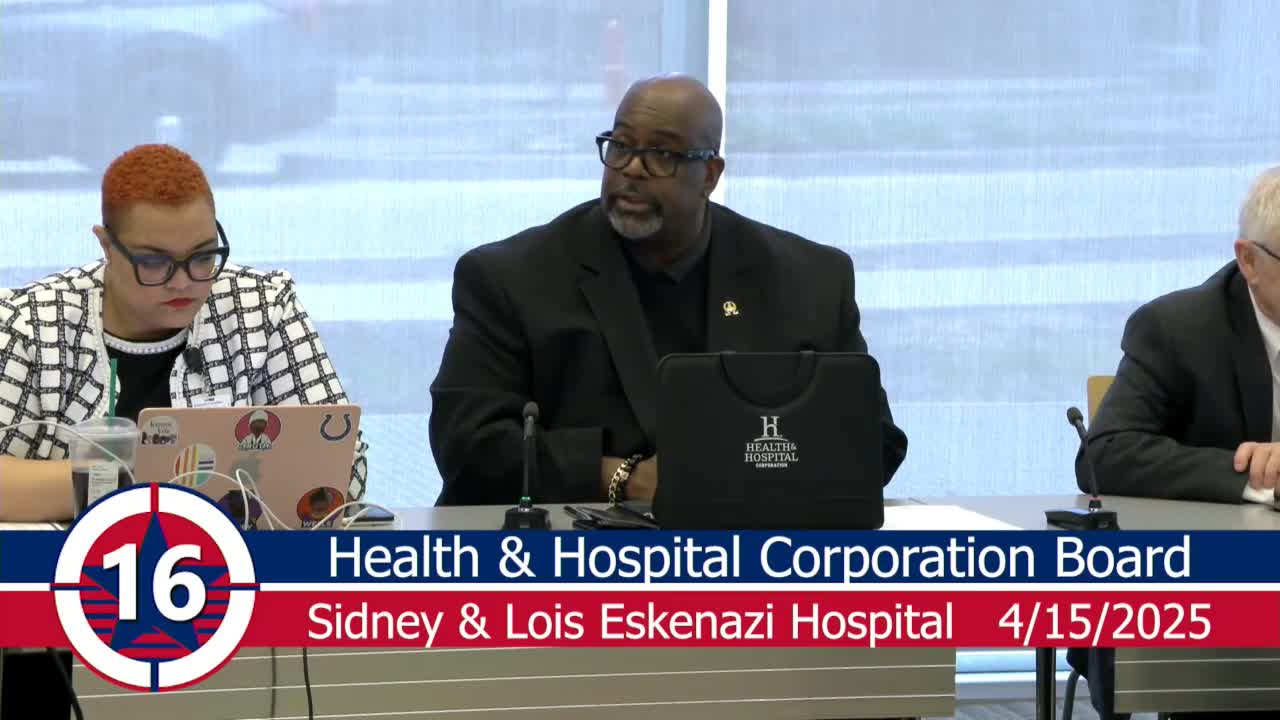Marion County health officials warn of national measles surge, set local testing and hospital precautions
Get AI-powered insights, summaries, and transcripts
Subscribe
Summary
Marion County Public Health Department officials told the Health and Hospital Corporation board that while no cases are confirmed in Marion County, they are preparing testing, triage and outreach amid a national measles surge and six cases in nearby Allen County.
Marion County Public Health Department Director and Chief Medical Officer Dr. Virginia Kane told the Health and Hospital Corporation Board of Trustees on April 15 that public health authorities are preparing locally for a possible measles outbreak even though there are no confirmed cases in Marion County.
Kane said 712 confirmed measles cases had been reported across 25 jurisdictions as of April, including 541 in Texas and six confirmed cases in Allen County. “The majority of the cases appear in the 5 to 19 years of age at 38 percent of the cases,” she said, and noted that under‑5 children accounted for about 32 percent of cases. Kane said 11 percent of reported cases nationally required hospitalization, and 20 percent of hospitalizations were in children under 5.
The department has convened infectious disease and epidemiology teams, developed a testing toolkit for health‑care partners and hospital guidance for triage and isolation, and plans to offer antibody testing for uninsured or resource‑limited residents. “If a parent brings in a child and has a rash and brings it to the urgent care waiting room area without calling in advance, if these folks are non‑immunized in that waiting room, over 90 percent of the folks in that waiting room will come down with measles,” Kane said, describing the disease as “one of the most contagious communicable diseases we have.”
Kane said the department will circulate a toolkit to board members and providers and host public town halls and provider education sessions. She described two diagnostic options: a nasal swab and a blood draw, noting nasal swabs will be used for young children when blood draws are impractical. Close contacts of confirmed cases generally have about 48 hours to receive post‑exposure prophylaxis; the department will test contacts for immunity when feasible and recommend vaccination if results cannot be obtained in that window.
Kane also said the department is meeting weekly with local hospital systems and infection‑control staff to coordinate responses and reiterated the need for health‑care sites to have isolation areas and personal protective equipment ready. She identified outreach priorities to immigrant and refugee communities and other pockets with low vaccination coverage.
Kane said Raleigh Hospital is hosting a public town hall on measles this Thursday, and the State Department of Health has held webinars for schools and providers.
The board asked about eligibility for vaccination and testing; Kane said the toolkit will specify guidance for providers and that the department will post information on its website.
Board members received the update as information; no formal action on measles response was taken at the meeting.
